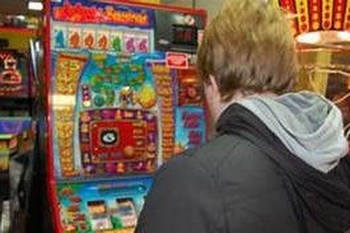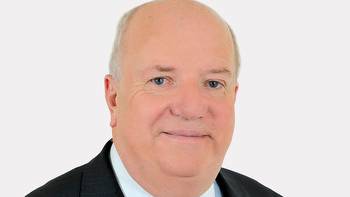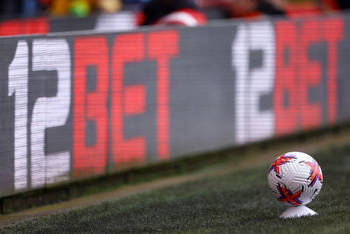Father who lost son, 34, to gambling addiction says law reform is 'merely a starting point'

The father of a man who took his own life because of his gambling addiction has welcomed steps towards the most substantial change to Northern Ireland's gambling laws in nearly 40 years but believes it's "merely a starting point".
Lewis Keogh from Co Fermanagh died almost 10 years ago after gambling online with credit cards that he could not afford.
His parents Sadie and Peter from Enniskillen only found out about his gambling addiction in his suicide note, explaining why he had to leave them which included six brutal words: “Gambling is cruel. I need peace.”
The 34-year-old had been living and working in Leeds and his family and close friends had no idea about his problem.
After Lewis' death in 2013, his parents began examining his past in an attempt to discover the root of his addition and believe it can be traced back to playing slot machines while waiting to get a bus home from school when aged 13 or 14.
Since then Sadie and Peter have been demanding action to stop other families spiralling into the crisis and grief they live through every day.
The couple are involved with the Gambling With Lives group, set up by family and friends of gambling addicts who have died by suicide.
They have also been calling on MLAs to change the archaic gambling laws in Northern Ireland and take into consideration the all-enveloping ease with which gambling can now slip into people’s lives online.
On Tuesday, Stormont took gambling reforms through their final stage of the legislative process, which aims to improve protection for children but more change will come in the next phase.
Last Autumn, Communities Minister Deirdre Hargey introduced the Betting, Gaming, Lotteries and Amusements (Amendment) Bill as a first step in a two-phased approach to reforming the regulation of gambling here.
Minister Hargey said this Bill will lay the ground work for much needed wider reforms in the next mandate which will include a new comprehensive legislative framework capable of regulating the online gambling industry wherever it is based and, above all, putting consumer safety at its heart.
Mr Keogh told Belfast Live the Bill marks the start of a wide-ranging programme of change to Northern Ireland's gambling legislation.
"Gambling in Northern Ireland hasn't been reformed since 1985 and this is merely a starting point. We're very pleased that this is happening but there are still so many flaws and gaps that need to be filled with the second major Bill," he said.
Amongst other issues the Bill removes the current £1 price limit on the sale of societies lottery tickets and increases the limit to a maximum of £100; sets a simpler, flat 20% limit on the amount of the proceeds of a lottery that may be appropriated for expenses and broadens the definition of cheating to include attempted cheating.
It also makes gambling contracts enforceable in law; removes some of the restrictions on promotional prize competitions and permits bookmakers and bingo clubs to open on Sundays and Good Friday.
In addition, the Bill creates new offences in relation to allowing children to play gaming machines and the power to impose a statutory levy and code of practice on gambling operators.
"I praise the Department for Communities, who have consulted with us the whole way along, in bringing this Bill forward. Overall this is a job started and a recognition of the need to do something about the dangers of gambling and the harm it does," Mr Keogh said.
"The positives include allowing the government to impose a levy on the gambling industry, which we would argue should be two per cent.
"On the negative side is a provision to open gambling establishments now seven days a week, which I don't think is necessary. I think it will take away that day of respite for gamblers so it's a bit of a disappointment."
According to the Gambling Commission, punters annually spend around £14.5 billion on gambling, much of it now online.
"The gaps in this Bill are well-known to anyone with a knowledge of the gambling industry, which by and large is now online," Mr Keogh added.
"These days the young fella on the street doesn't go into the bookies, he goes to his phone and the various apps. That's a huge raft of legislation, which is absolutely essential for next time around.
"Any provision of a new law in our mind is only as good as the enforcement and we need to set up a version of the Gambling Commission, similar to England and Wales.
"Secondly, gambling is a public health issue and the rest of the legislation must go forward in conjunction with the Departments of Health and Education.
"The awareness of gambling must be taught in our secondary schools as part of the curriculum. There is also little or no training for doctors on how to spot the signs of gambling addiction in the same way there is for alcohol and drugs."
Minister Hargey said the Bill will improve protection for children and young people through the creation of a new offence of inviting, causing or permitting a young person under 18 years to play a high stakes gaming machine.
She added: “It provides the creation of enabling powers to allow for a levy to be imposed on the industry as well as Codes of Practice.
“The Bill also provides increased opportunities for local charities, sports clubs and other voluntary groups to raise more money for good causes by increasing the maximum ticket price and simplifying the rules around deduction of expenses that apply to societies’ lotteries.
“Every journey starts with the first step, and this Bill is the first step in a huge programme of reform of the gambling industry here, with more change to come in the next phase.”
It is expected the majority of the provisions in the Bill will become law as soon as Royal Assent is received.
If you or someone you know is in distress or despair, call free-phone 24/7 crisis counselling helpline Lifeline on 0808 808 8000.


































